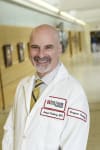2023 State-of-the-Art Treatment for Early Stage Lung Cancer

Join us for a multidisciplinary review of early stage non-small cell lung cancer (NSCLC) presented by the Temple Health Office for Continuing Medical Education, Fox Chase Cancer Center, and the Temple Lung Center—nationally recognized researchers and clinicians specializing in thoracic surgery, medical oncology, radiation oncology, radiology, pulmonology, and nursing.
The program will focus on the latest research and strategies for optimally managing early stage NSCLC patients, including detection, imaging, diagnosis, staging, and treatment.
DETAILS:
Saturday, November 4, 2023
8:00 am – 8:30 am Check-in and Breakfast
8:30 am – 4:00 pm CME Program
Philadelphia Marriott Old City
One Dock Street, Philadelphia, PA 19106
Program Directors:
Joseph Friedberg, MD, FACS
Thoracic Surgeon-in-Chief, Temple University Health System
Vice Chair, Surgical Services,
Department of Thoracic Medicine and Surgery
Co-Director, Temple-Fox Chase Cancer Center
Mesothelioma and Pleural Disease Program
Professor, Thoracic Medicine and Surgery,
Lewis Katz School of Medicine at Temple University
Professor, Department of Surgical Oncology, Fox Chase Cancer Center
Gerard Criner, MD, FACP, FACCP
Chair and Professor, Thoracic Medicine and Surgery,
Lewis Katz School of Medicine at Temple University
Director, Temple Lung Center
Sukhmani Kaur Padda, MD
Professor, Department of Hematology/Oncology, Fox Chase Cancer Center
Vice Chair and Professor of Medical Oncology,
Fox Chase Cancer Center at Temple University Hospital
Melissa Culligan, RN, MS, PhD Candidate
Co-Director, Temple-Fox Chase Cancer Center
Mesothelioma and Pleural Disease Program
Presenters and Topics:
Session One - Moderator: David Manoff, MD
“Houston, We Have a Problem” A Rapid-Fire Review of Finding, Diagnosing, and Staging Non-Small Cell Lung Cancer (NSCLC)
- Lung Cancer Screening 2023—Who, How, Why, What’s Next?
Gerard Criner, MD, FACP, FACCP - Review of the Current NSCLC Staging System—Getting Us on the Same Page
Cherie Erkmen, MD - 2023 CT Radiographic Imaging for Lung Nodules and Clinical Staging of NSCLC—Artificial Intelligence vs. Real Intelligence
Hillel Maresky, MD - 2023 Bronchoscopic Diagnosis of Lung Nodules—What’s Possible, What’s Not, and How It’s Done
Christopher Manley, MD - 2023 Percutaneous Diagnosis of Lung Nodules—What We Can Hit, What We Can’t
- Maruti Kumaran, MD, MBBS, FRCR
2023 Bronchoscopic Staging of the Mediastinum—When to Stick It, When Not; How Sensitive and Accurate Are We?
Rohit Kumar, MD - The Dying Art of Mediastinoscopy—When, if Ever?
Stacey Su, MD, FACS - The Vexing and Ever-Increasing Problem of Ground Glass Opacities
Whitney Burrows, MD - “So You Got a Biopsy; Now What?”—Lung Cancer Pathology 101, for the Interested but Uninformed
Douglas Flieder, MD
SESSION TWO - Moderator: Jessica Bauman, MD
“Now What?” Treating the Lung Cancer Patient
- Thoracic Surgery 101 (For Those Unfortunate Enough Not to be Thoracic Surgeons)
Charles Bakhos, MD, MBA, MS, FACS - Getting the Patient from the Office to the Operating Room—The Nuts and Bolts and Tips, Tricks, and Advice
Kaitlyn Gregory, DNP, CRNP, FNP-BC - Quality of Life and Other Considerations—Thinking About the Whole Patient
Melissa Culligan, RN, MS, PhD Candidate - Radiation for Lung Cancer 101—Where Are We in 2023?
Curtis Miyamoto, MD - Adjuvant and Neoadjuvant Treatment of Lung Cancer: The Revolution and What You Need to Know
Martin Edelman, MD
SESSION THREE - Moderator: Joseph Friedberg, MD, FACS
“But Wait, There’s More” Additional Updates to Add to Your Arsenal
- Exciting Basic Science and Translational Lung Cancer Research—For English Majors and Surgeons
Margie Clapper, PhD - Current Clinical Trials Everyone Should Know About
Jessica Bauman, MD - Mesothelioma: Not Lung Cancer but Seems to Get Lumped in—Where Are We in 2023?
Joseph Friedberg, MD, FACS - Liquid Biopsies for Lung Cancer—What Are They, What Role Should They Play, and Does Anyone Even Pay for Them?
J. Nicholas Bodor, MD, PhD, MPH
SESSION FOUR - Moderator: Sukhmani Kaur Padda, MD
Tumor Board Case Presentations Putting it All Together
- Early Stage Disease in High-risk Patients (Poor Pulmonary Function, Prior Lung Transplant, Multiple Comorbidities)
Danish Ahmad, MD; Jessica Bauman, MD; Cherie Erkmen, MD; Sameera Kumar, MD - Complex Cancer in Low-risk Patients (T4 Tumors)
Danish Ahmad, MD; Jessica Bauman, MD; Whitney Burrows, MD; Sameera Kumar, MD - Bilateral Nodules (Both Solid and GGO)
Jessica Bauman, MD; Whitney Burrows, MD; Rohit Kumar, MD; Sameera Kumar, MD - Stage 3a Disease—The Persistent Grey Zone in Lung Cancer Treatment
Jessica Bauman, MD; Rohit Kumar, MD; Sameera Kumar, MD; Stacey Su, MD, FACS
OBJECTIVES:
At the conclusion of the course, the learner should be able to:
- Explain current principles related to screening, diagnosing, staging, and treating non-small cell lung cancer patients
- Recognize current clinical and translational lung cancer research
- Identify treatment options for patients with complex lung cancer presentations and recognize the importance of a multidisciplinary lung cancer tumor board in generating these options.
INTENDED AUDIENCE:
Primary care and family medicine physicians; medical, surgical, and radiation oncologists; thoracic and general surgeons; pulmonologists; pathologists; radiologists; fellows/residents/students; nurses; physician assistants; advanced practice providers; and researchers involved in the management of patients with lung cancer and mesothelioma.
ACCREDITATION STATEMENT:
The Temple Health Office for Continuing Medical Education is accredited by the Pennsylvania Medical Society to provide continuing medical education for physicians. Fox Chase Cancer Center is approved as a provider of nursing continuing professional development by the Pennsylvania State Nurses Association, an accredited approver by the American Nurses Credentialing Center’s Commission on Accreditation.
DESIGNATION STATEMENT:
The Temple Health Office for Continuing Medical Education designates this live activity for a maximum of 5.5 AMA PRA Category 1 Credits™. Physicians should only claim the credit commensurate with the extent of their participation in the educational activity.
Fox Chase Cancer Center designates this live activity for a maximum of 5.5 Hour(s) NCPD (ANCC Contact Hours). Participants should claim only the credit commensurate with the extent of their participation in the activity






